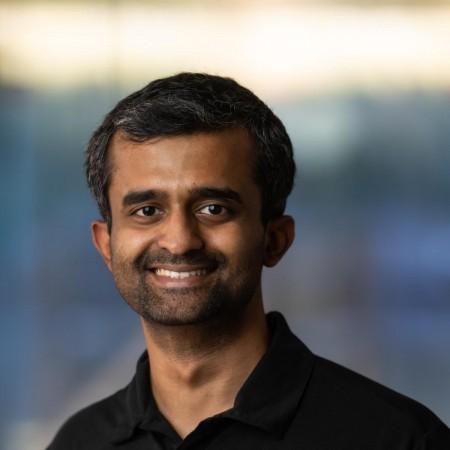
Over the past few years, the healthcare sector has undergone a profound transformation, characterized by the emergence of innovative business models, unexpected partnerships, and a heightened need for efficiency. The conventional pace of digital adoption within healthcare had often lagged behind other industries, but the pandemic acted as a catalyst, driving healthcare organizations to rapidly reassess their operations and embrace cutting-edge tools and technologies. Historical data indicates that during times of crisis, prioritizing research and innovation can be instrumental in catalyzing growth during the recovery phase. In this context, the contributions of brilliant minds like Harisankar Sadasivan are pivotal in driving the healthcare sector towards a future characterized by resilience and innovation.
Harisankar Sadasivan is a dedicated research scholar pursuing his Ph.D. in Computer Science and Engineering at the University of Michigan Ann Arbor. His work in computer system design has made significant strides in the healthcare sector, specifically in the United States, by solving complex problems and improving the accuracy of critical healthcare applications. His academic journey began with a Bachelor of Technology in Electronics and Communication Engineering from NITK, Surathkal, India. Building on this foundation, he completed his Master of Science in Computer Science and Engineering at the University of Michigan Ann Arbor from 2018 to 2020. Currently, he is pursuing a Ph.D. in the same field at the same prestigious institution with the research topic "Accelerated Systems for Portable DNA Sequencing". His educational background and relentless pursuit of knowledge have paved the way for groundbreaking research in healthcare technology.
One of the most pressing challenges in healthcare applications, particularly in genomics, is ensuring the accuracy of diagnostics while simultaneously enhancing the speed of data processing. Hari Sadasivan's research endeavors have directly addressed this issue by significantly accelerating state-of-the-art software used in critical healthcare applications, such as Precision Medicine.
One of his notable accomplishments is the optimization of Minimap2, a software tool employed for long-read DNA alignment. Minimap2's efficiency suffered when operating on very long DNA reads due to irregular workload distribution and control flow. Harisankar developed a solution called mm2-ax, which successfully accelerated Minimap2's bottleneck step of chaining using GPUs, all without compromising accuracy. This achievement marked a milestone as it transformed Minimap2's chaining algorithm to harness more parallelism and implemented various strategies to minimize branch divergence and improve workload balancing. That resulted in mm2-ax which is 5.4 times faster than Intel's SIMD accelerated version of Minimap2.
Harisankar's collaborative work with his advisor Prof. Satish Narayanasamy, and NVIDIA led to the release of mm2-ax and the publication of their optimizations in the Journal of Biotechnology and Biomedicine. Although mm2-ax software is a closed source, the research publication disclosed crucial algorithmic transformations that garnered global attention from research labs.
Harisankar's contributions to the field have been widely recognized, earning him the UM-CSE Haddard Fellowship in 2019 and Google Cloud Research Credits for mm2-ax in 2020. His work was also featured in IEEE-HKN Bridge's Graduate Research Spotlight. Harisankar's dedication to healthcare technology was inspired by a deeply personal experience, He says "I lost my grandmother to cancer in 2010. That's when I realized the importance of timely decisions in healthcare. Since then, I have enjoyed solving challenging system design problems in healthcare and genomics."
Harisankar's research prowess first garnered media attention when he and his team developed a system for traffic accident detection and ambulance management at NITK. This groundbreaking work was recognized with the Best Paper Award at IEEE ICAEES 2016, highlighting Harisankar's early commitment to solving critical problems in healthcare and system design. Harisankar and his team's recent work on a portable and programmable pathogen detector for future pandemics earned them accolades, including the "functional" and "available" badges at the IEEE/ACM MICRO'21 artifact submission. The paper was presented at the MICRO'21 conference and was selected for the ACM MICRO 2022 Top Picks with honorable mention.
Currently, Harisankar collaborates with NVIDIA to develop faster genome mapping solutions, which holds the promise of revolutionizing pathogen and cancer diagnostics. His research is driving us closer to a future where rapid and accurate testing solutions on inexpensive and portable genome sequencing platforms are readily available for every home, aligning with his vision that healthcare should start at home, just like having a thermometer.
Harisankar Sadasivan's tireless dedication to solving challenging system design problems in healthcare and genomics is vital for the progress of healthcare technology in the United States and beyond. His work serves as a beacon of hope, promising a future where healthcare decisions are both timely and precise, ultimately saving countless lives.








